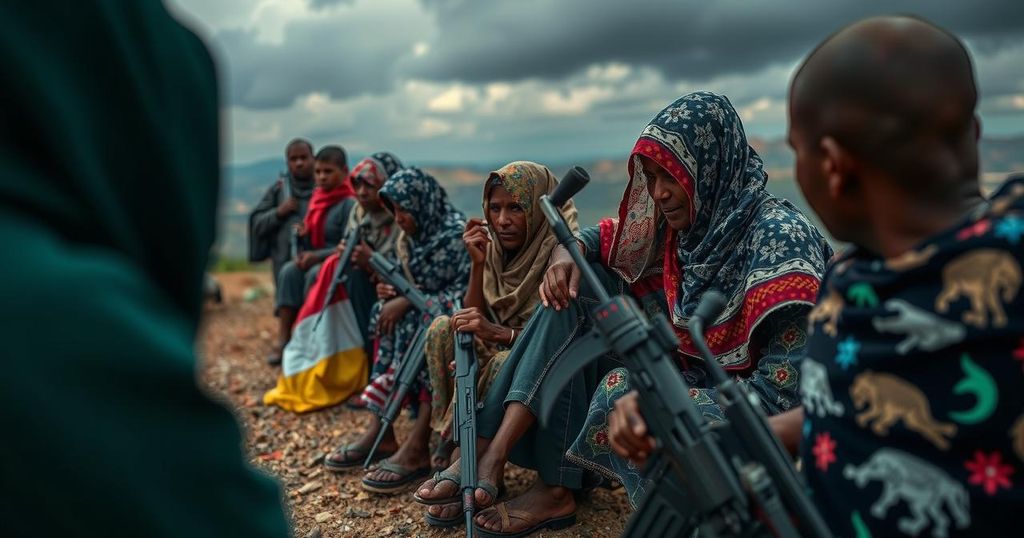Kenya’s Repatriation of Turkish Refugees Raises Humanitarian and Legal Concerns

Kenya confirmed the capture and repatriation of four Turkish refugees at Turkey’s request, with assurances from Turkish authorities regarding their humane treatment. This action has drawn condemnation from Amnesty International, citing violations of both Kenyan and international refugee laws. Concerns have been raised about the safety of refugees in Kenya amidst fears of imminent risks for the repatriated individuals.
Kenya has publicly acknowledged the capture and subsequent repatriation of four Turkish refugees in response to a request made by the Government of Turkey. The confirmation was provided on Monday by Foreign Affairs Principal Secretary Dr. Korir Sing’Oei, who remarked that Ankara has committed to ensuring the dignified treatment of its nationals. The individuals in question—Alparslan Taşçı, Mustafa Genç, Huseyin Yesilsa, and Öztürk Uzun—were transported from Nairobi on a flight that departed on Friday. Dr. Sing’Oei clarified that these individuals had been residing in Kenya under refugee status and emphasized that the Ministry of Foreign and Diaspora Affairs had received assurances from Turkish authorities regarding the humane treatment of the repatriated individuals, in accordance with both national and international standards. He articulated that Kenya’s decision was influenced by the longstanding and strategic relationship between the two nations, established through various bilateral agreements. In addressing concerns over confidentiality, Dr. Sing’Oei stated that the Kenyan government is committed to maintaining the privacy of the repatriated individuals and will abstain from engaging with media inquiries until an inter-agency review of the case is finalized. Furthermore, he reassured the international community of Kenya’s dedication to upholding and promoting the rights of refugees as dictated by legal frameworks at both national and international levels. He declared, “the rights, welfare, and well-being of the more than 780,000 refugees residing in the country will remain the government’s singular priority.” However, the incident has drawn criticism from human rights organizations, notably Amnesty International, which has denounced the action as a violation of Kenyan and international refugee law. Amnesty expressed concerns that the abduction signifies a worrying trend regarding the safety of refugees and asylum seekers in Kenya, emphasizing that the refugees had sought protection from the government. They cautioned that the individuals face imminent risks should they be forcibly returned to Turkey, which could result in severe human rights violations. The organization’s statement highlighted that such actions contravene the principle of non-refoulement, which is upheld in Kenyan law as well as various international conventions, including the 1951 Refugee Convention. Yasin Yakut, a director of a local institution supporting refugees, warned that the lives of these individuals are gravely endangered. He stated, “They are all refugees under the United Nations in the country, so they are all accepted and are working with different organizations here.” This situation has escalated tensions, culminating in a report made to the Kileleshwa Police Station on Friday, classifying the incident as an abduction.
The repatriation of Turkish refugees from Kenya has raised significant legal and humanitarian concerns, drawing attention to the obligations of nation-states under international law. The events illustrate the complex interplay between national security concerns and the rights of individuals seeking asylum. The actions of the Kenyan government, purportedly carried out under a bilateral agreement with Turkey, have sparked fears over the safety of refugees within its borders, particularly with claims of potential human rights violations if repatriated. Organizations such as Amnesty International are actively highlighting the breach of established norms in refugee protection, reinforcing the need for adherence to both Kenyan and international laws designed to safeguard vulnerable populations seeking refuge from persecution.
In summary, Kenya’s recent decision to repatriate four Turkish refugees at Turkey’s request has ignited significant controversy and criticism from human rights advocates. While the Kenyan government emphasizes its historical ties with Turkey and assures that the repatriated individuals will be treated with dignity, organizations like Amnesty International have condemned this action as a direct violation of refugee law. The broader implications of this incident raise pressing questions about the safety of refugees in Kenya and the obligations of states to protect those fleeing persecution.
Original Source: nation.africa








